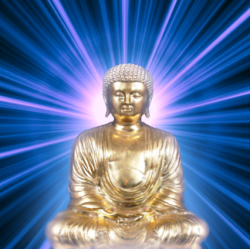Difference between revisions of "Yakushi-ji"
| Line 5: | Line 5: | ||
(1) One of the two head [[temples]] of the [[Dharma Characteristics]] ([[Hosso]]) school in [[Nara]], [[Japan]], the other being [[Kofuku-ji]] [[temple]]. Both were counted among the seven major [[temples]] of [[Nara]]. {{Wiki|Emperor Temmu}} (r. 673-686) [[vowed]] to build the [[temple]] in 680 to house an image of the [[Buddha]] [[Medicine Master]] (Jpn [[Yakushi]]) for the recovery of his ailing [[consort]]. Subsequent to his making this [[vow]], her {{Wiki|illness}} was cured. Construction of the [[temple]] did not substantially progress, however, until after the [[emperor's]] [[death]] in 686. His [[consort]], who succeeded him as [[Wikipedia:Empress Jitō|Empress Jito]], continued the project, and the [[temple]] was completed in 698 during the reign of [[Wikipedia:Emperor Monmu|Emperor Mommu]]. Originally located in the capital of that [[time]], Fujiwara-kyo, the [[temple]] was newly built in [[Nara]] in 718 after that city became the capital. (Thereafter the original [[temple]] in Fujiwara-kyo was called Moto [[Yakushi-ji]], or the original [[Yakushi-ji]].) The structures of [[Yakushi-ji]] in [[Nara]] were eventually destroyed by [[fire]], earthquakes, and [[wind]] storms, but were rebuilt in later centuries. The statue of the [[Buddha]] [[Medicine Master]] is [[thought]] to date to the late seventh or the early eighth century. | (1) One of the two head [[temples]] of the [[Dharma Characteristics]] ([[Hosso]]) school in [[Nara]], [[Japan]], the other being [[Kofuku-ji]] [[temple]]. Both were counted among the seven major [[temples]] of [[Nara]]. {{Wiki|Emperor Temmu}} (r. 673-686) [[vowed]] to build the [[temple]] in 680 to house an image of the [[Buddha]] [[Medicine Master]] (Jpn [[Yakushi]]) for the recovery of his ailing [[consort]]. Subsequent to his making this [[vow]], her {{Wiki|illness}} was cured. Construction of the [[temple]] did not substantially progress, however, until after the [[emperor's]] [[death]] in 686. His [[consort]], who succeeded him as [[Wikipedia:Empress Jitō|Empress Jito]], continued the project, and the [[temple]] was completed in 698 during the reign of [[Wikipedia:Emperor Monmu|Emperor Mommu]]. Originally located in the capital of that [[time]], Fujiwara-kyo, the [[temple]] was newly built in [[Nara]] in 718 after that city became the capital. (Thereafter the original [[temple]] in Fujiwara-kyo was called Moto [[Yakushi-ji]], or the original [[Yakushi-ji]].) The structures of [[Yakushi-ji]] in [[Nara]] were eventually destroyed by [[fire]], earthquakes, and [[wind]] storms, but were rebuilt in later centuries. The statue of the [[Buddha]] [[Medicine Master]] is [[thought]] to date to the late seventh or the early eighth century. | ||
| − | (2) A [[temple]] that existed in {{Wiki|Shimotsuke Province}} in [[Japan]]; today only its ruins remain. It had one of three [[Buddhist]] [[ordination]] platforms in the country in the mid-eighth century, the other two being at [[Todai-ji temple]] in Nara and at [[Kanzeon-ji]] [[temple]] in Chikuzen Province. [[Yakushi-ji]] [[temple]] was built somewhere between the late seventh and the early eighth centuries. The | + | (2) A [[temple]] that existed in {{Wiki|Shimotsuke Province}} in [[Japan]]; today only its ruins remain. It had one of three [[Buddhist]] [[ordination]] platforms in the country in the mid-eighth century, the other two being at [[Todai-ji temple]] in Nara and at [[Kanzeon-ji]] [[temple]] in Chikuzen Province. [[Yakushi-ji]] [[temple]] was built somewhere between the late seventh and the early eighth centuries. The ordination platform was erected at the [[temple]] in 761 to conduct {{Wiki|ceremonies}} conferring the [[Buddhist]] [[precepts]] upon {{Wiki|priests}} and [[nuns]] living in the eastern part of [[Japan]]. |
</poem> | </poem> | ||
{{R}} | {{R}} | ||
[http://www.sgilibrary.org/search_dict.php www.sgilibrary.org] | [http://www.sgilibrary.org/search_dict.php www.sgilibrary.org] | ||
[[Category:Japanese Buddhist Temples]] | [[Category:Japanese Buddhist Temples]] | ||
Latest revision as of 12:09, 17 April 2014
Yakushi-ji; 薬師寺; Yakushi-ji
(1) One of the two head temples of the Dharma Characteristics (Hosso) school in Nara, Japan, the other being Kofuku-ji temple. Both were counted among the seven major temples of Nara. Emperor Temmu (r. 673-686) vowed to build the temple in 680 to house an image of the Buddha Medicine Master (Jpn Yakushi) for the recovery of his ailing consort. Subsequent to his making this vow, her illness was cured. Construction of the temple did not substantially progress, however, until after the emperor's death in 686. His consort, who succeeded him as Empress Jito, continued the project, and the temple was completed in 698 during the reign of Emperor Mommu. Originally located in the capital of that time, Fujiwara-kyo, the temple was newly built in Nara in 718 after that city became the capital. (Thereafter the original temple in Fujiwara-kyo was called Moto Yakushi-ji, or the original Yakushi-ji.) The structures of Yakushi-ji in Nara were eventually destroyed by fire, earthquakes, and wind storms, but were rebuilt in later centuries. The statue of the Buddha Medicine Master is thought to date to the late seventh or the early eighth century.
(2) A temple that existed in Shimotsuke Province in Japan; today only its ruins remain. It had one of three Buddhist ordination platforms in the country in the mid-eighth century, the other two being at Todai-ji temple in Nara and at Kanzeon-ji temple in Chikuzen Province. Yakushi-ji temple was built somewhere between the late seventh and the early eighth centuries. The ordination platform was erected at the temple in 761 to conduct ceremonies conferring the Buddhist precepts upon priests and nuns living in the eastern part of Japan.
